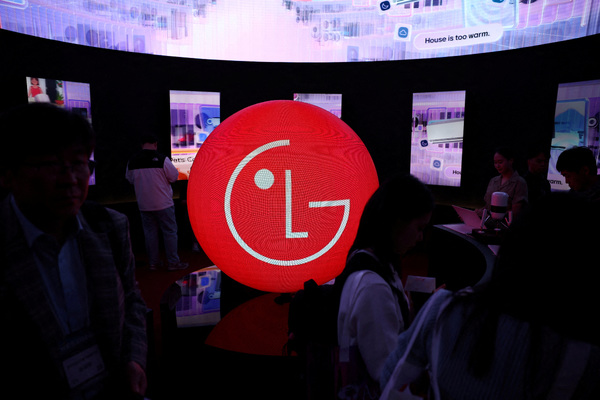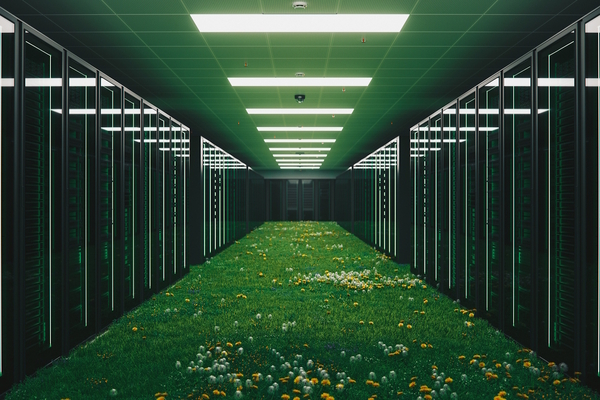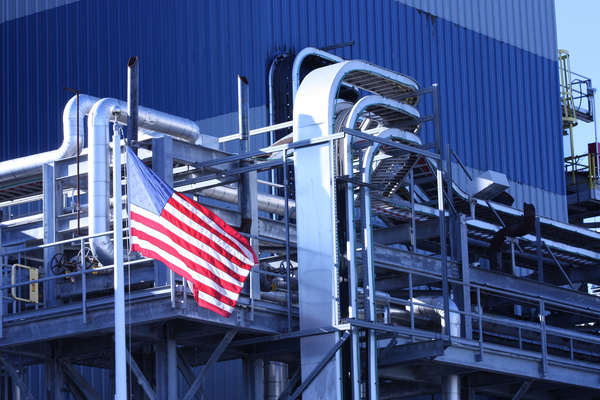How consumer choices affect sustainability

Martin Lockwood at Manhattan Associates argues that the sustainability agenda is bigger than politics
Over the last two centuries, the global economy has experienced prolonged and sustained growth. During that same period, globalisation has enabled commerce to thrive.
The integration of national economies into a shared international economic system has been one of the most significant developments of the last century.
Globalisation has resulted in remarkable growth in trade, with exports now 40+ times larger than in 1913. The interconnectivity of financial markets post-World War II has driven international trade to historic levels: today, the sum of exports and imports across nations amounts to more than 50% of the value of total global output.
While the increase in global commerce is generally regarded as a positive development, it has brought challenges too.
With wider international trade networks and the increasing speed of technological advance, there are now more questions than ever being asked about increasingly complicated (and fragile) supply chains, next-day fulfilment practices, consumer expectations and the overall environmental impact of human activity on our planet.
With supply chains underpinning the very foundations of trade, the last two decades have understandably seen an increased impetus on operational gains, such as speed and optimisation, in order to maximise (often) squeezed margins. While these types of operational efficiencies remain crucial to multinational brands, we must recognise that P&Ls, stock prices and sales are intrinsically linked to the health of the planet.
The environment is a theme that transcends borders, oceans and politics. And while the current international landscape may be full of challenges and uncertainty, that does not mean it is time to pull back from sustainability agendas. And, as supply chains generate around 60% of all carbon emissions globally, making them more environmentally conscious will be vital to fighting climate change more broadly.
Encouraging greener consumer behaviour
Most brands that offer direct-to-consumer (D2C) selling channels still don’t have the ability to allow consumers to aggregate orders over a multi-day period or change an order beyond a 30 to 60-minute remorse period. Essentially, after you have completed the transaction, you relinquish the ability to change, cancel, or even add to your order.
This inflexibility inevitably leads to poor consumer practices. But what if you could give consumers the ability and options to influence their own fulfilment process (delivery options, edits to orders, returns options etc.)? By giving consumers, the tools to proactively change their minds, you’re giving them the opportunity to make well-informed, ‘greener’ choices in the long-term.
Wasted space: bad for the planet and P&L
Smarter Pallet Fill Algorithms can provide as much as a 7% increase in truck fill ratios. While this improvement might seem small at first glance, when you have a fleet of thousands of trucks travelling millions of miles each year, marginal gains can add up to significant reductions in an organisation’s overall carbon footprint.
If, by having more efficient fleet loading capabilities, you can reduce the need for just one truck per month, you could reduce overall CO2 output by almost 40 metric tons a year. That is a significant reduction in CO2, which ranks among the most harmful greenhouse gases affecting the planet.
Similarly, advances in the use of smarter algorithms and GenAI are now having significant, positive impacts when it comes to reducing the amount of packaging used in warehouse and outbound delivery processes. With smarter dunnage utilisation, less packaging can be used throughout the fulfilment process and less air shipped, meaning transportation becomes more efficient, with fewer trucks on the roads and planes in the skies.
Smarter, greener transportation planning
Beyond simply the electrification of fleets, let us consider transportation management for a moment. Having a modern, effective transportation system in place is another key consideration when addressing Scope 1 emissions from supply chains.
Every freight movement has a carbon footprint (be that on an industrial level or an individual direct-to-consumer level). Powerful optimisation engines using GenAI make transportation planning faster, while route optimisation analyses traffic, distance and delivery schedules to map the most efficient paths, minimising fuel consumption and vehicle wear.
For non-urgent items, retailers can also turn to alternative transportation methods like rail or sea freight. While slower, these options are far cheaper and less carbon-intense than air or truck-based shipping, allowing cost and carbon savings on certain products that don’t require immediate delivery.
Staying the course
It might sound like a cliché, but the path to a more sustainable planet begins with the small decisions we all make every day. It’s these choices that define who we are as individuals and organisations.
It would be easy to simply denounce the evils of globalisation and capitalism, but we must also not lose sight of the fact that global commerce remains vitally important to the livelihoods and well-being of billions of people all over the globe.
Although the inherent nature of commerce and the movement of goods can never be entirely ‘green’, we must acknowledge that this does not mean it cannot be more sustainable than it has been in the past. As organisations and individuals, we all have a role to play in a coordinated effort towards a greener, more environmentally responsible future.
Earth Day was on April 22. It’s just one day. However, it represents a chance to reconsider how we as consumers (and organisations) can all play an active part in the sustainability narrative - and that is the real value and relevance of Earth Day each year.
Martin Lockwood is Senior Director at Manhattan Associates
Main image courtesy of iStockPhoto and oatawa

Business Reporter Team
Most Viewed
Winston House, 3rd Floor, Units 306-309, 2-4 Dollis Park, London, N3 1HF
23-29 Hendon Lane, London, N3 1RT
020 8349 4363
© 2025, Lyonsdown Limited. Business Reporter® is a registered trademark of Lyonsdown Ltd. VAT registration number: 830519543





